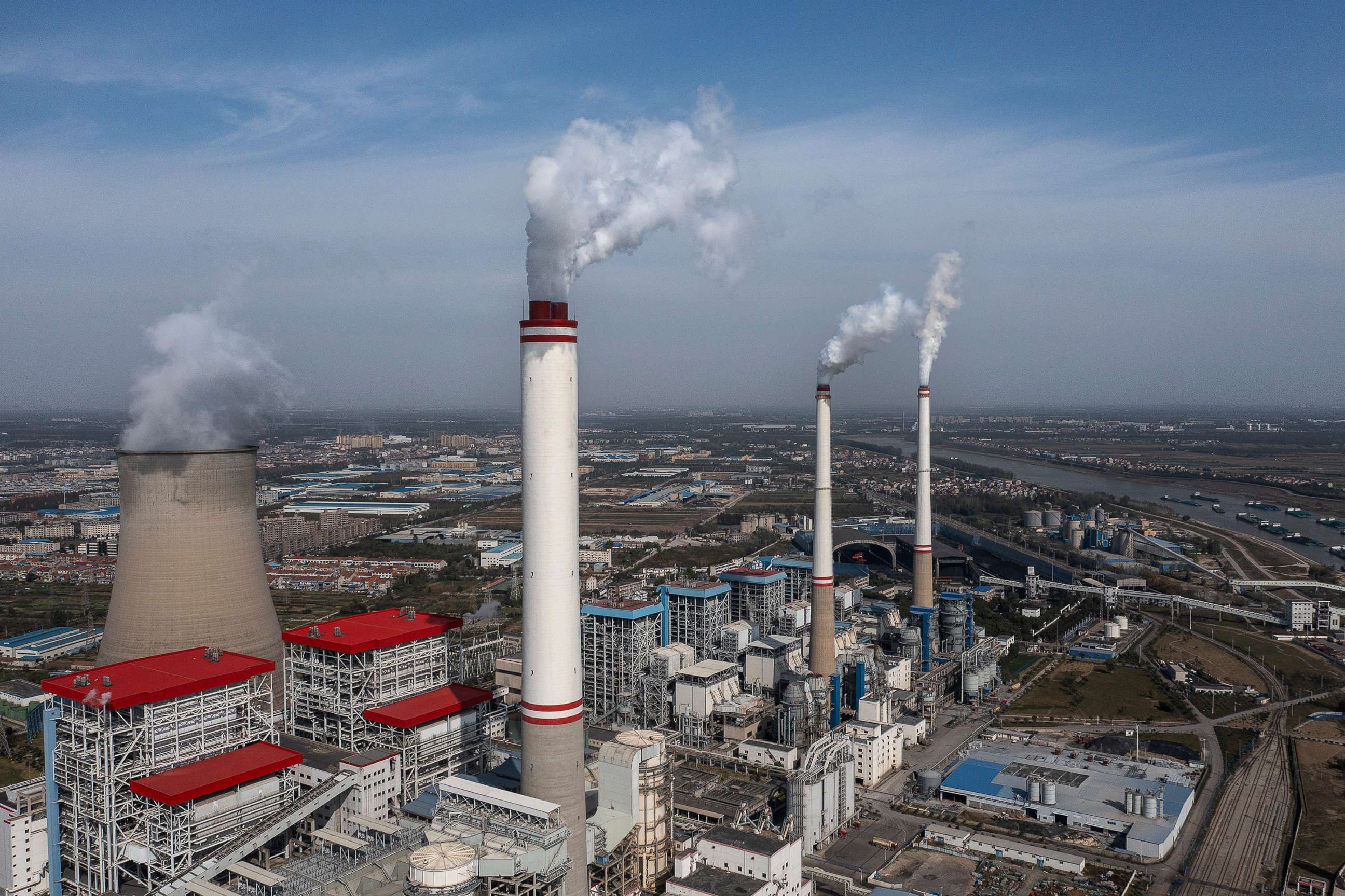Most favor steps against climate change, though public divides on its urgency: POLL
Greenhouse gas regulations have the backing of 70% of Americans.
Broad majorities of Americans see climate change as a serious problem and favor government regulation of greenhouse gas emissions to address it. Yet, the public is divided on the urgency of the issue, a contrast to the views of leaders at the COP26 climate summit in Scotland.
Leaders at the global conference, which ends today, described climate change as an existential threat to humanity that demands a concerted response. In a new ABC News/Washington Post poll, however, Americans split, 45-49%, on whether it's "an urgent problem that requires immediate government action" or "a longer-term problem that requires more study" first. (Five percent volunteer that it's not a problem.) Views that it's urgent are 8 percentage points off their peak, 53%, in 2018.
See PDF for full results and charts.
Nonetheless, other results in this poll, produced for ABC by Langer Research Associates, show continued substantial majority support for action, albeit without steady growth. In one, 67% call climate change a serious problem facing the country, including 57% calling it very serious. Both are about the same as in a 2014 ABC/Post poll.
In another, 70% say the federal government should regulate the release of greenhouse gases from sources such as power plants, cars and factories in an effort to reduce global warming. It's ranged from 65% to 75% in a half-dozen polls since 2009.
Intensity of sentiment is on the side of regulation: Forty-eight percent strongly support regulating greenhouse gas emissions versus 16% strongly opposed. That said, strong support is at a numerical low; it peaked at 54% in April 2009.
Groups
Political views play a substantial role in these attitudes. In one example, the drop since 2018 in seeing climate change as urgent is steepest among conservatives, down 13 points, compared with non-significant declines (3 and 4 points) among moderates and liberals.
Indeed, 95% of Democrats and liberals alike see this as a serious problem compared with half as many Republicans and conservatives, 39% and 41%, respectively. Independents and moderates fall between the two, with 69% and 75% saying it's a serious problem.
There also are notable differences by race/ethnicity, metro status, education and age, albeit with majorities across these groups calling climate change a serious problem. It's 93% among Black people, 72% of Hispanics and 60% of whites. It's 76% among urbanites and 67% among suburbanites, dropping to 54% among rural residents. Seventy-eight percent of those with post-graduate degrees say it's a serious problem, compared with 64% of those without a college degree. And 78% of 18- to 29-year-olds see it as serious versus 64% of those 30 and older.

Seeing climate change as a "very" serious problem peaks among liberals (92%), Democrats (90%) and Black people (85%). It's lowest among strong conservatives (21%), Republicans (25%), evangelical white Protestants (26%) and those who identify themselves as "somewhat" conservative (37%).
Views of the seriousness of the issue inform attitudes on urgency in addressing it. Among those who think climate change is a very serious problem, 73% think it's urgent and requires immediate government action. That drops precipitously to 16% of those who think it's a serious problem but not very serious and 4% of those who don't think it's a serious problem.
These views correspond to support for regulation of greenhouse gases as well. This is backed by 89% of those who see climate change as very serious and 69% of those who see it as serious, versus 40% of those who don't see it as serious. A relationship also holds in terms of urgency: Those who see an urgent problem are 40 points more likely than others to support emission controls, 93% versus 53%.
Methodology
This ABC News/Washington Post poll was conducted by landline and cellular telephone Nov. 7-10, 2021, in English and Spanish, among a random national sample of 1,001 adults. Results have a margin of sampling error of 3.5 percentage points, including the design effect. Partisan divisions are 27-26-37%, Democrats-Republicans-Independents.
The survey was produced for ABC News by Langer Research Associates of New York City with sampling and data collection by Abt Associates of Rockville, Maryland. See details on the survey's methodology here.



